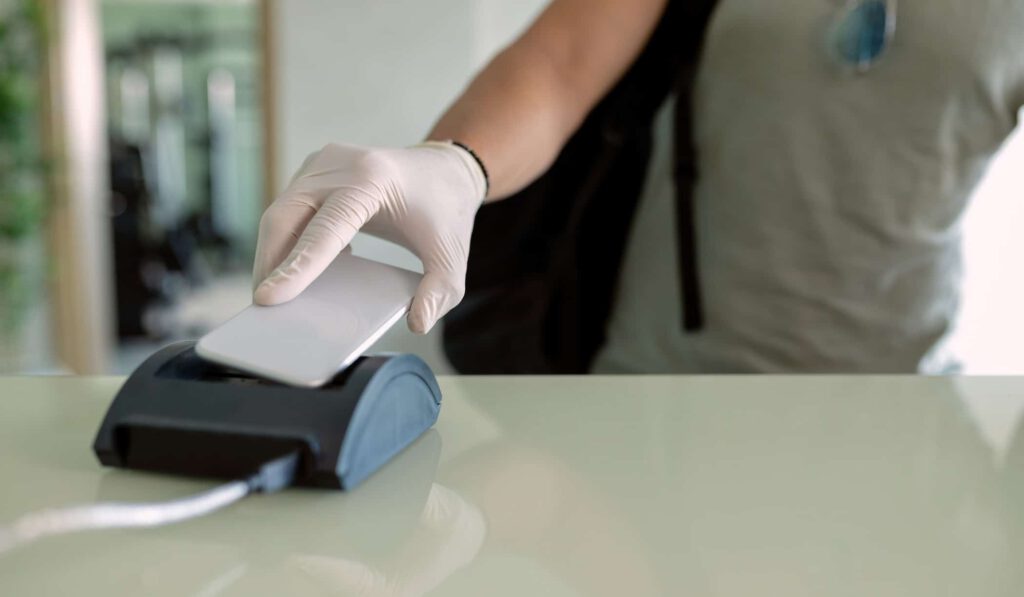The COVID-19 pandemic was an unprecedentedly difficult time for the hospitality industry — with travel and large gatherings at a near-standstill all over the world, hotel occupancy dropped below 25 percent in April of 2020.
Though the pandemic seems to be waning as vaccination rates rise and infection rates fall worldwide, the past year has accelerated the adoption of many new technologies across the hospitality space. If your hotel is going to keep pace with the new landscape of travel, you’ll need to keep your technology current. With a heightened focus on sanitation, automation, and contactless interactions, here’s a look at some of the tech your hotel will want to consider over the next few years.
Alternatives to Phones
Millennials don’t like talking on the phone. According to Forbes, millennials are more averse than any previous generation to making plans over the phone — and, given that millennials constitute more than half of hotel travelers, this is a trend you can’t afford to ignore.
Hotels with analog phone systems will struggle to keep up with changing modes of communication. Copper landlines can’t accept or send text messages, nor can they integrate with other communications apps like WhatsApp, Telegram, or Messenger. Even if your hotel has email set up, there’s no way to unite the conversations you have on the phone with the communications you have via email.
With a digital voip system, you can unite all your communication methods into one single hub, collating your customers’ information so you never forget a name, a preference, or a message.
Contactless Check-in and Checkout
After a full day of travel, the last thing a guest wants is to wait in line for a member of your front desk to be available. Contactless check-in and checkout allow your guests to scan their phone, press a button in a mobile app, visit a browser page, or use a kiosk in the lobby to open their room up and print a room key.
When they leave your hotel, guests are often in a hurry to get going. Giving them the option to drop their room key in a drop box and mark their rooms as vacant on their phones on the way out the door or even after they’ve left the building will make their entire experience run more smoothly.
NFC Keyless Entry
Room key cards are a needless waste of plastic in a high-tech world — even if you use them over and over, guests will inevitably lose them or keep them by accident and throw them away. Today’s smartphones and even watches are often equipped with near-field communication (NFC) technology that can completely replace a traditional room key.
With NFC, guests need only hold their phones near the lock on the door to unlock it. Some all-inclusive resorts have even added NFC chips to reprogrammable bracelets that guests wear, allowing them to open their rooms, charge their meals to their rooms, and gain access to areas like the gym and conference rooms without ever holding a key.
Voice Commands
Smart homes have skyrocketed in popularity in recent years — Amazon has claimed that there are 100 million devices with Alexa enabled, while Google boasts ten times that number. While the upfront investment in smart tech for your hotel is not to be taken lightly, the features that can be added are substantial.
Guests can order room service, book facilities, adjust their thermostats, and set wakeup calls with their voices. They can even change the TV channel, order pay-per-view, and control the lighting in their room.
Digital Concierges
Between a growing aversion to phone calls and guest nervousness around face-to-face interactions, your hotel customers are much less likely to want to speak to a concierge than they used to be.
Digital travel guides and local information will let you serve up individualized information to each guest (and you’ll save on paper to boot). Your travelers are already turning to online information to research local attractions, restaurants, museums, hiking trails, and more.
By sending a brief survey about their interests along with their reservation confirmation, you can get a sense of their travel plans and the nature of their trip, then send them a unique guide to help them better enjoy their stay. As an added bonus, you’ll gain valuable insight into the needs and interests of your guests at large.



